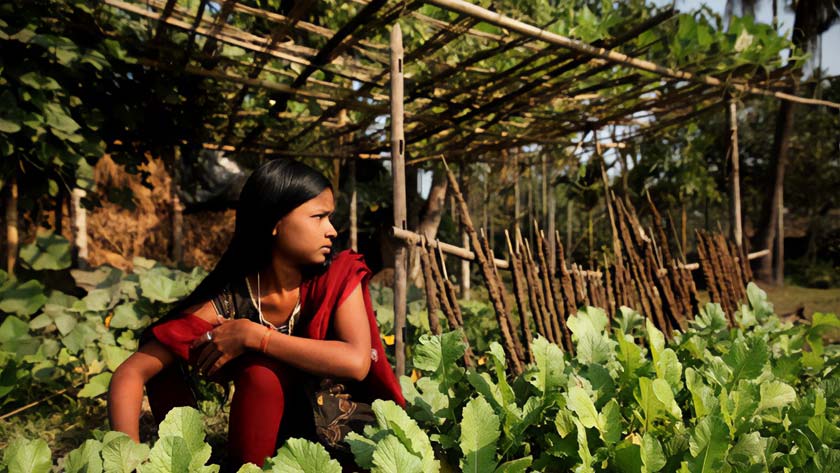By Zainab Salbi and Chris Jochnick
The past few years have been marked by crisis and conflict not seen in generations.
Covid-19, the war in Ukraine, the mounting consequences of climate change – each has left a devastating imprint on our world. And each has had a disproportionate impact on millions of women and girls.
There is something else they have in common: Secure and gender-equitable rights to land are a critical tool to shift the balance of power and build resilience for women, their households, and communities.
Unfortunately, rather than recognize women and girls for as agents of resilience and change, the devastating effects of each of these events has conditioned us to think of women and girls in terms of victimhood.
We have an opportunity to flip the script on our gendered thinking. Instead of thinking in terms of victimhood, it is critical for us to remember that women and girls are resilient agents of change – and that their potential to respond to all crises, from conflict to climate change, is accelerated when they enjoy secure rights to land.
Women are the backbone of agriculture – the land they tend grows food that feeds million. Thirty percent of employed women worldwide earn a living through farming, according to the International Labour Organization. That figure almost certainly underrepresents women’s enormous contributions to food security. Their on-farm responsibilities are often reduced to “household chores,” masking the countless productive hours they spend planting, tending, and harvesting.

We don’t know to what extent women contribute to food security, because too often women farmers are rendered “invisible.” And we don’t know how much they contribute to protecting land, conserving forests, and guarding natural resources for similar reasons.
These challenges are compounded by a persistent gap in land rights worldwide. Millions of women worldwide face legal or customary barriers to their ability to own, access, and manage land. Altogether, less than 15 percent of landholders worldwide are women — a disparity that prevents millions of women from realizing their full potential.
The call for land rights justice – from Indigenous women and land rights activists alike – has persisted for decades. Despite this, women in half the world still lack secure land rights, depriving millions of a critical tool that’s essential for sustainable land management and climate action.
Secure land rights grant women the security and capacity to invest in solutions for climate change mitigation and adaptation, including soil rehabilitation, agroforestry, irrigation, and other climate-smart practices.
Putting the power of land rights into the hands of women and girls can create a powerful ripple effect, with benefits for people and our planet. Women are often more likely to see the value of sustainable practices, giving time for these techniques to take root in their communities.

With so much at stake, it is past time to honor all that women do in preserving intergenerational joy and bringing about tangible solutions to address the world’s most pressing challenges. It is time to honor women as guardians – of the soils that grow our food and the forests that stand as a bulwark against climate change. To honor them is to support their work, learn from their experiences, listen to their wisdom, and include them at all decision-making tables.
Women around the world are reigniting positive, joyous memories of how we relate to our Earth and to each other. But our celebration of their efforts cannot be a mere token one of spoken words. Instead, let our support be a tangible one, measured in real money and in seats at the table.
Fortunately, the world is awakening to the power and potential of women as agents of change. Governments, donors, and development actors are increasingly investing in women’s land rights. The Stand for Her Land campaign (S4HL) is a multi-stakeholder effort to close the gap between policy and practice and help millions of women realize land rights in their daily lives. With national coalitions active in six countries across Asia, Africa, and Latin America, S4HL is an example of the power of collaborative action to fulfill women’s rights to land.
Humanity cannot solve the towering challenges of our time while continuing to ignore the wisdom of half its population. The world needs women to build more resilience into our systems, helping to avert the next humanitarian crisis before it begins.
Zainab Salbi is co-founder of Daughters for Earth and Women for Women International. Chris Jochnick is President & CEO of Landesa, the global land rights organization.